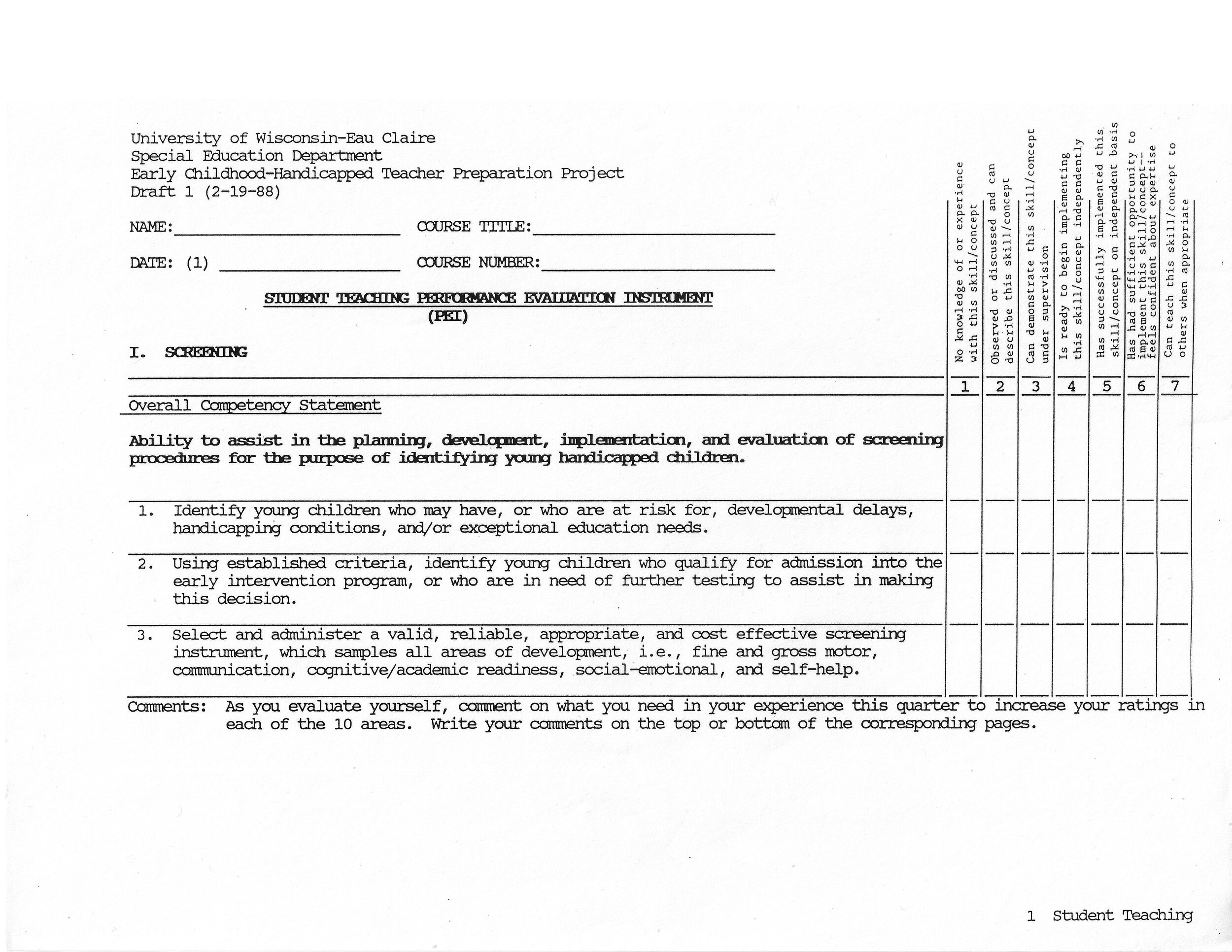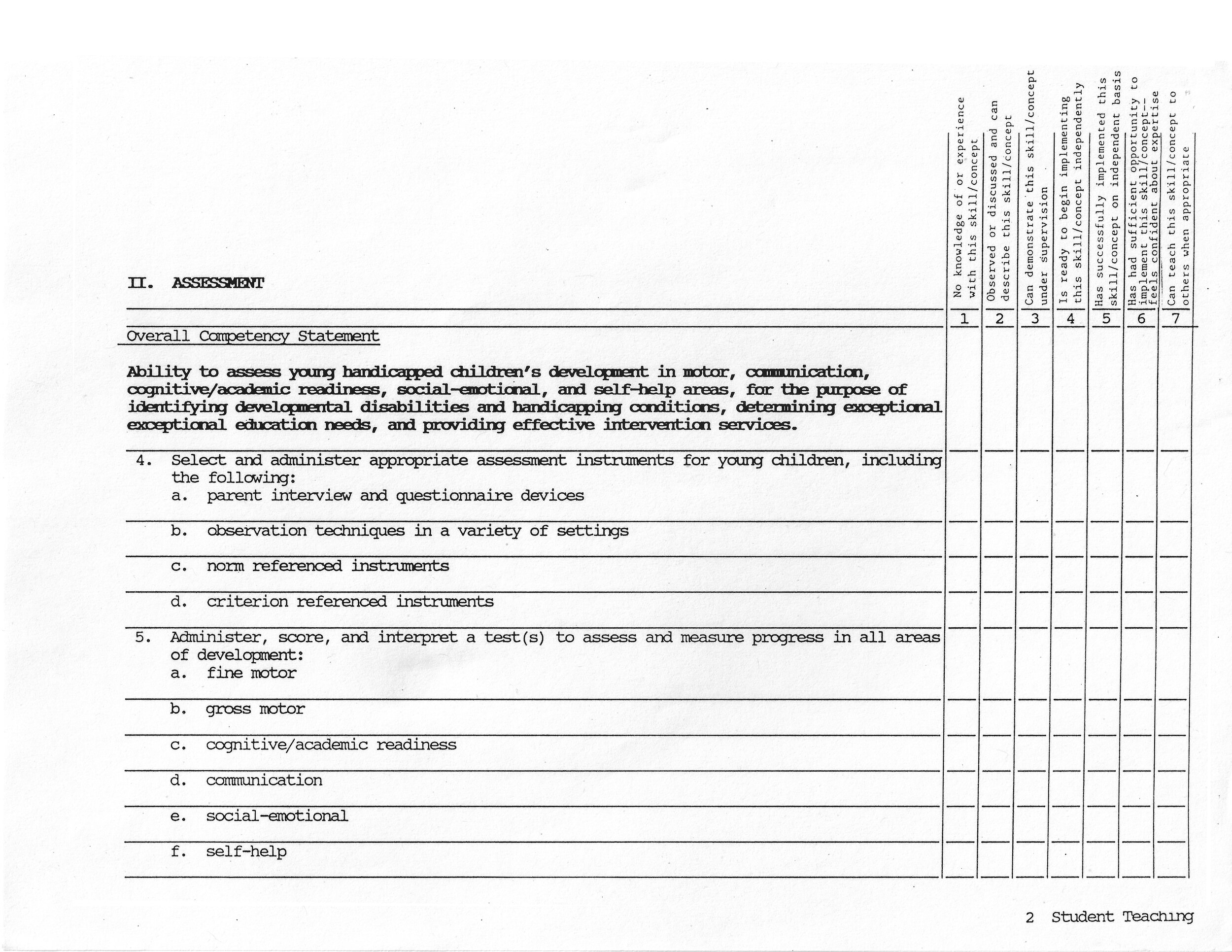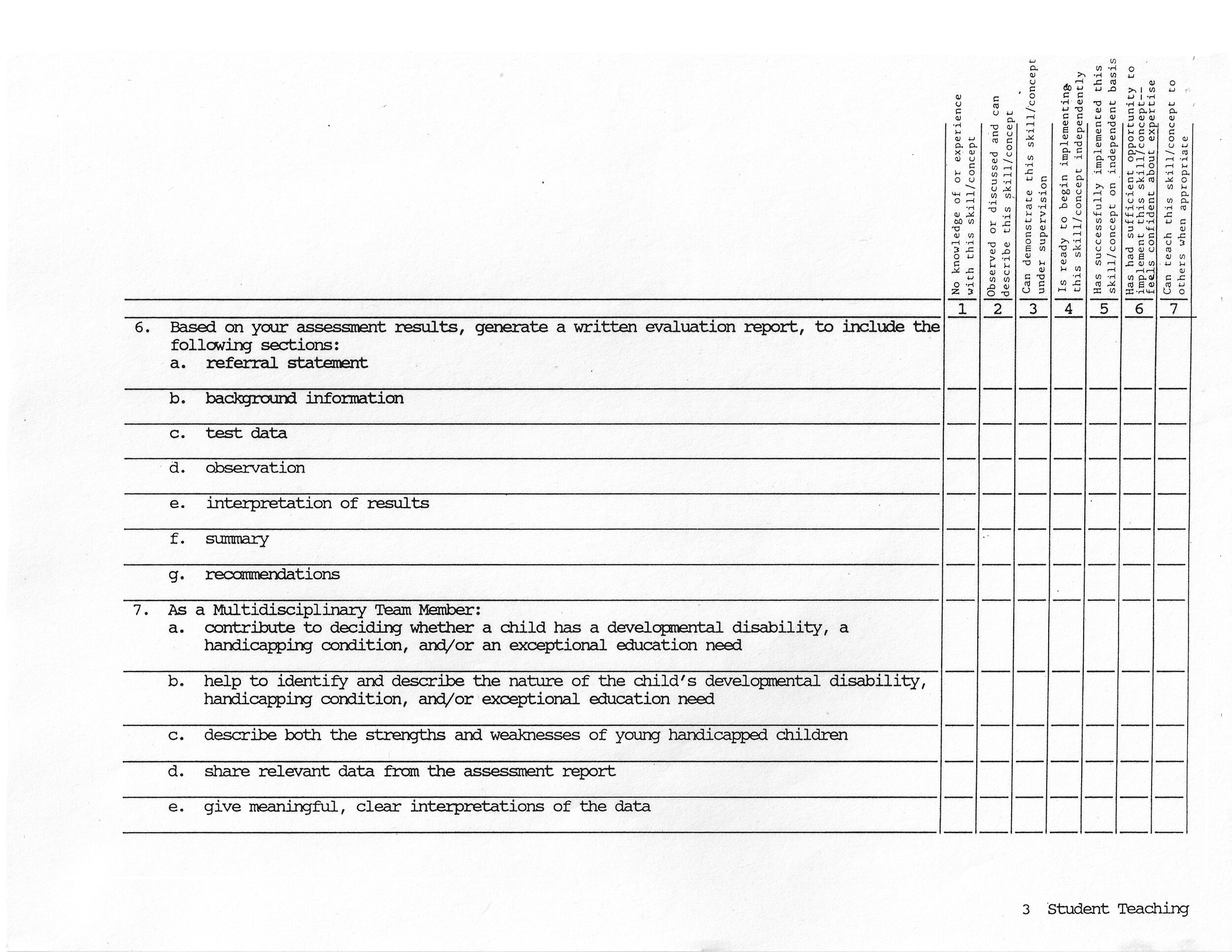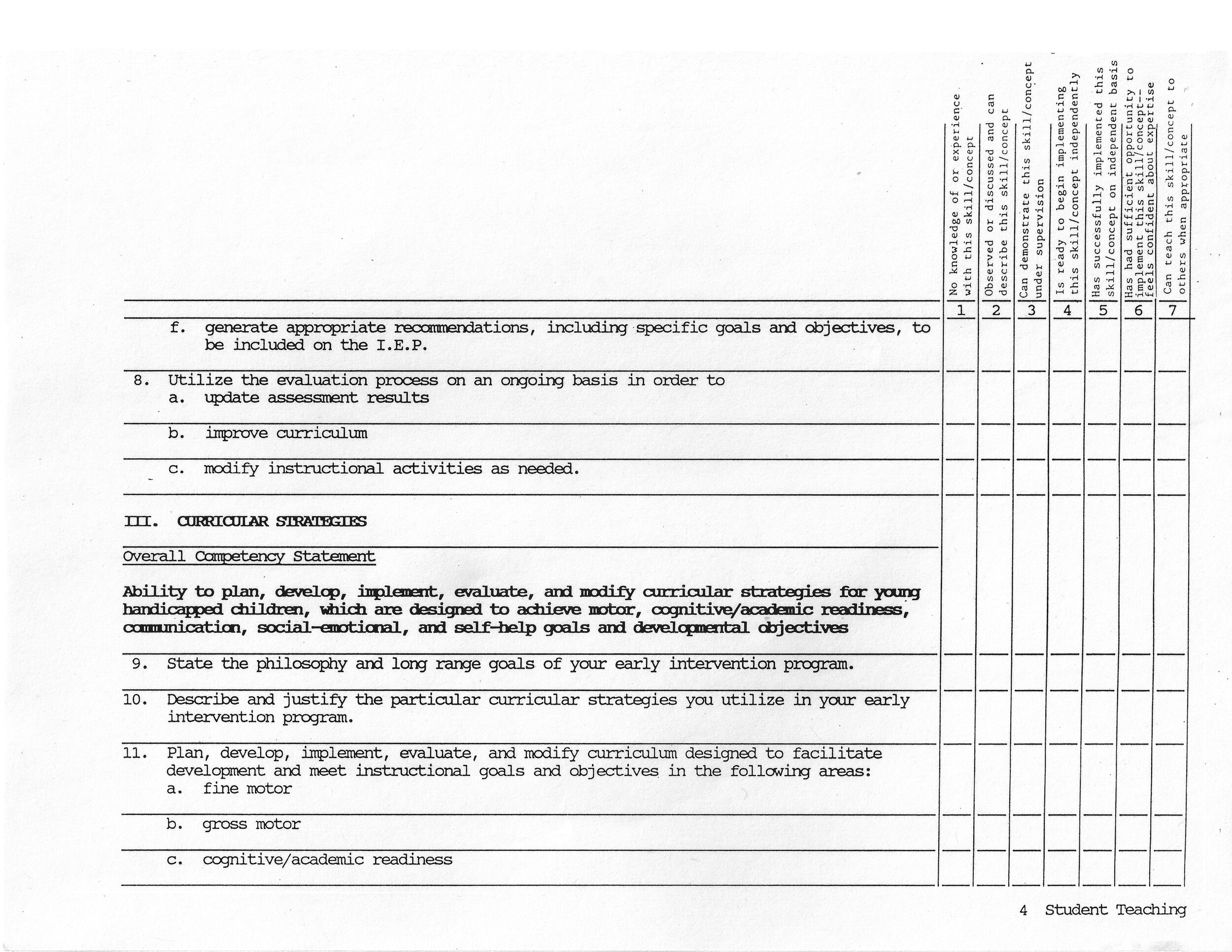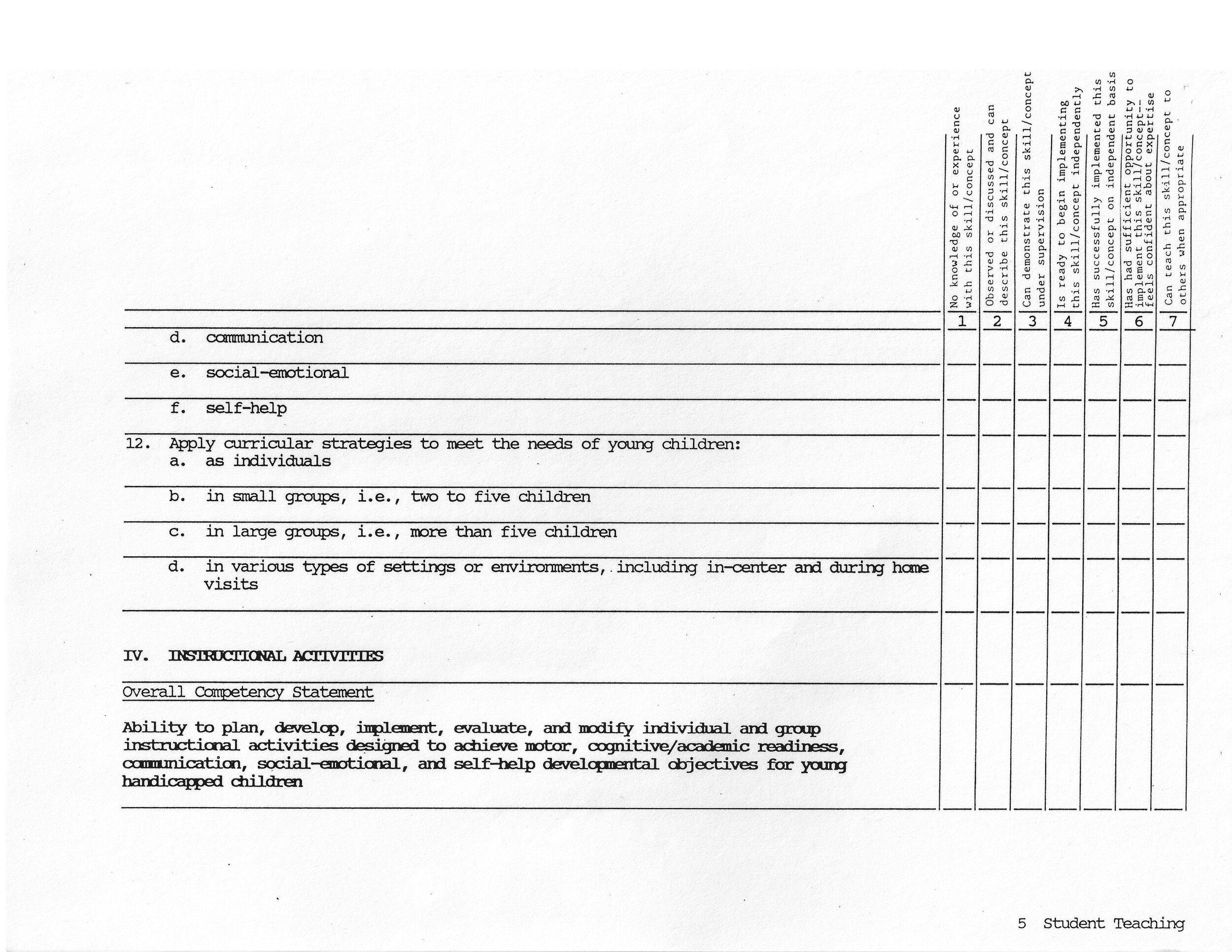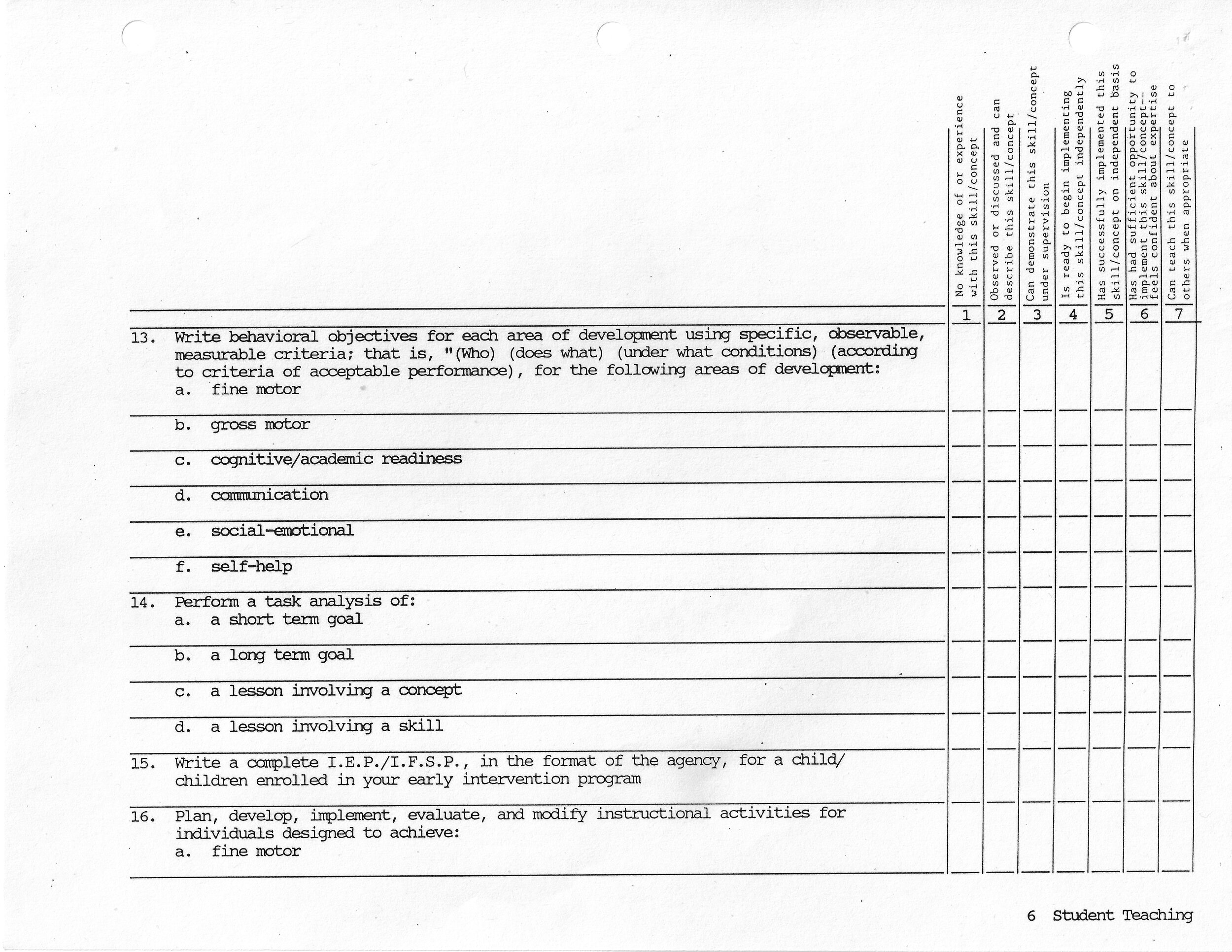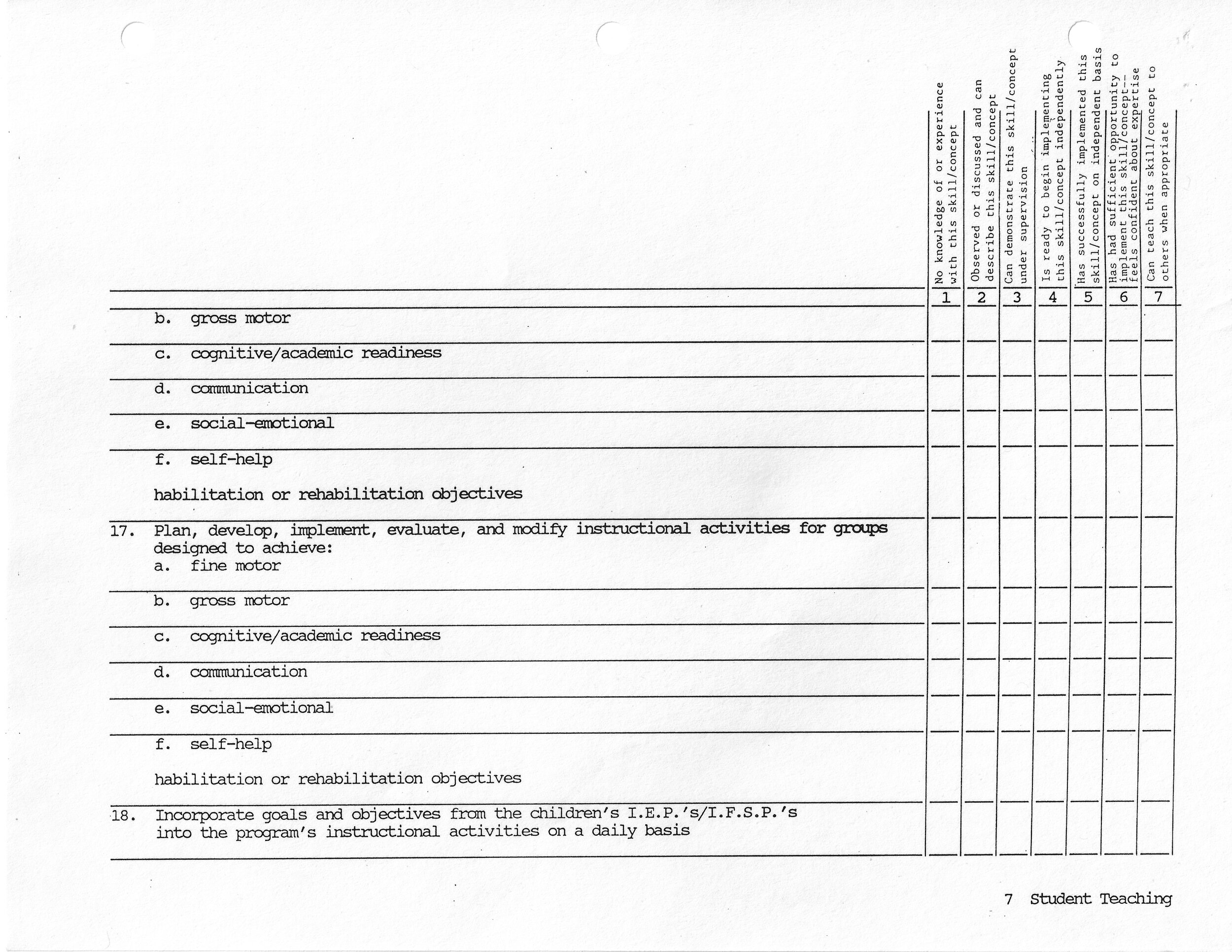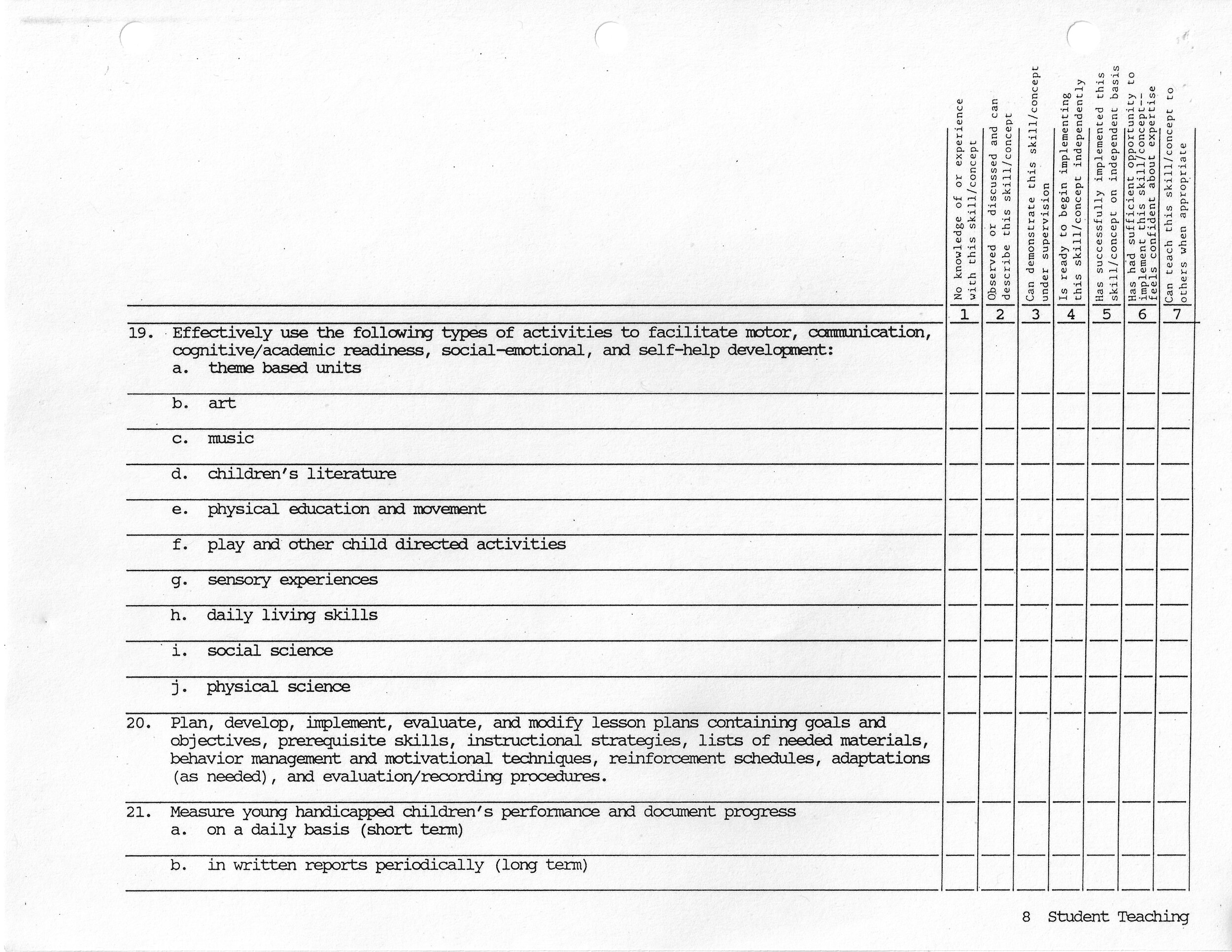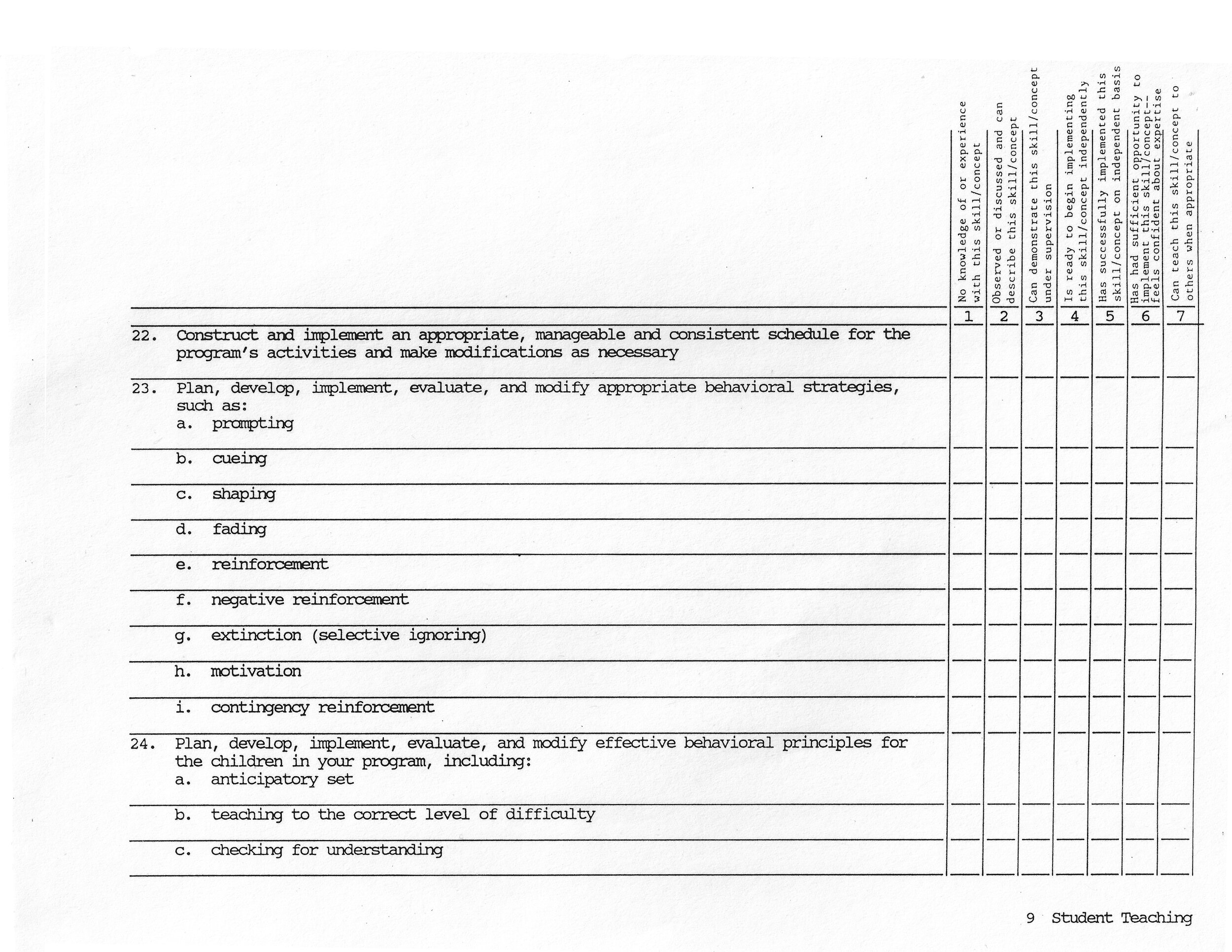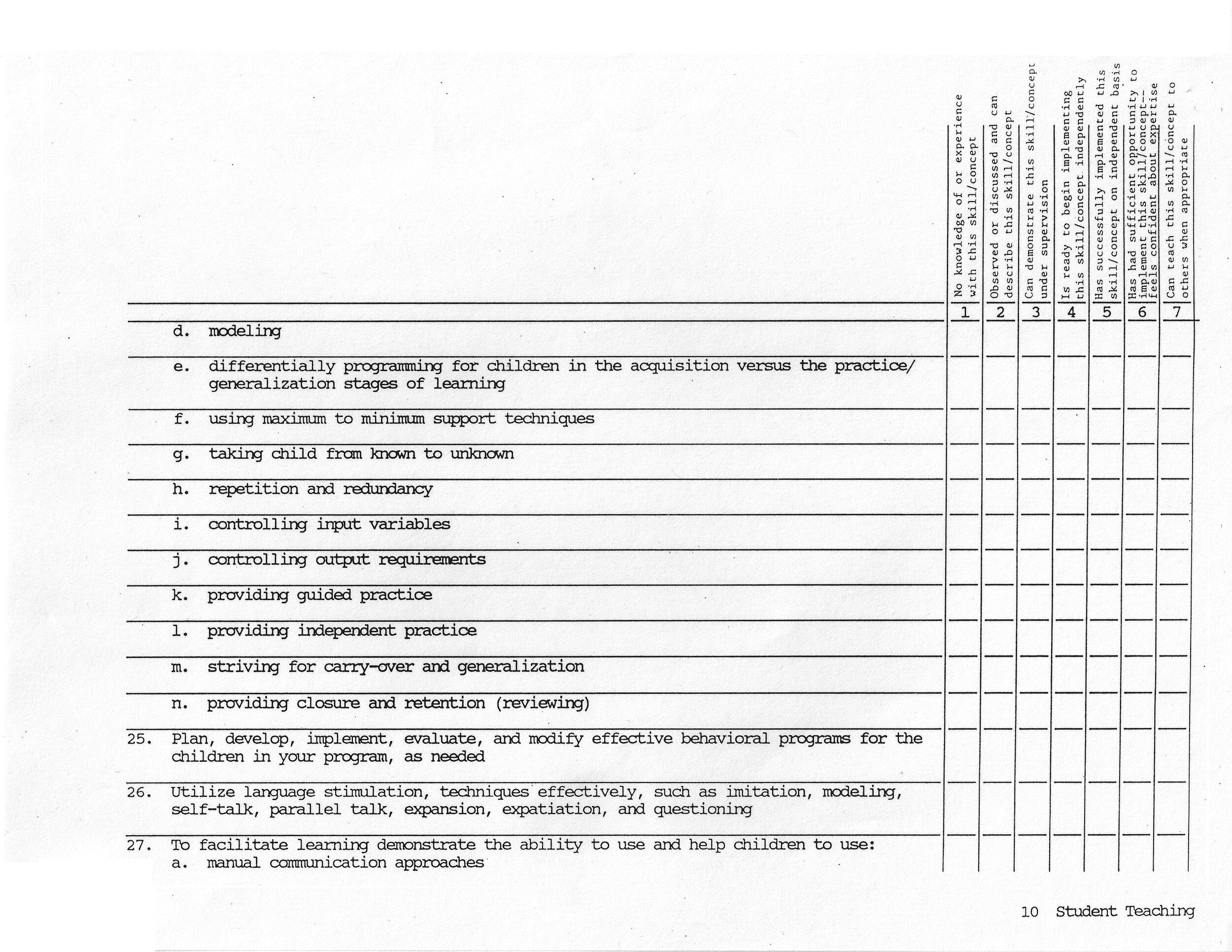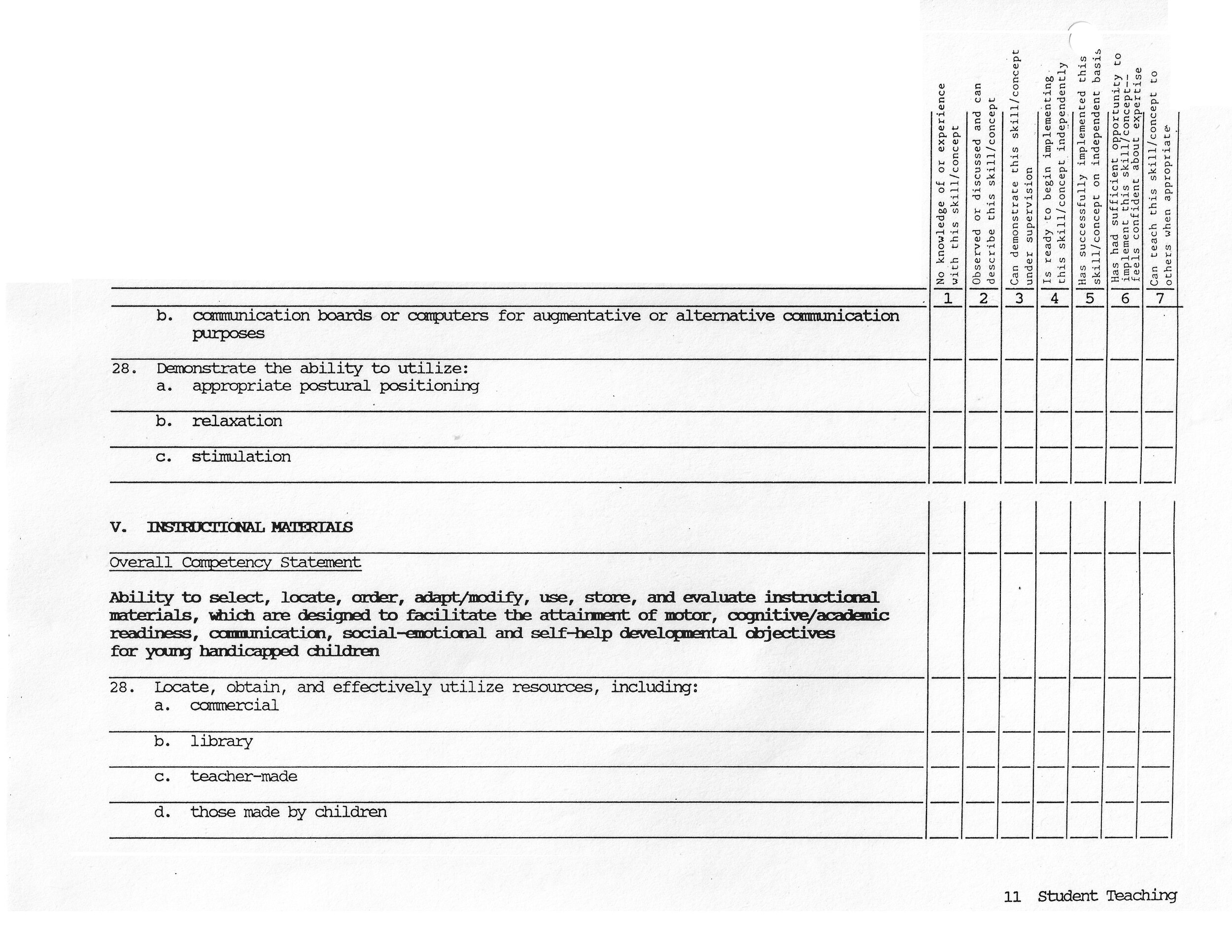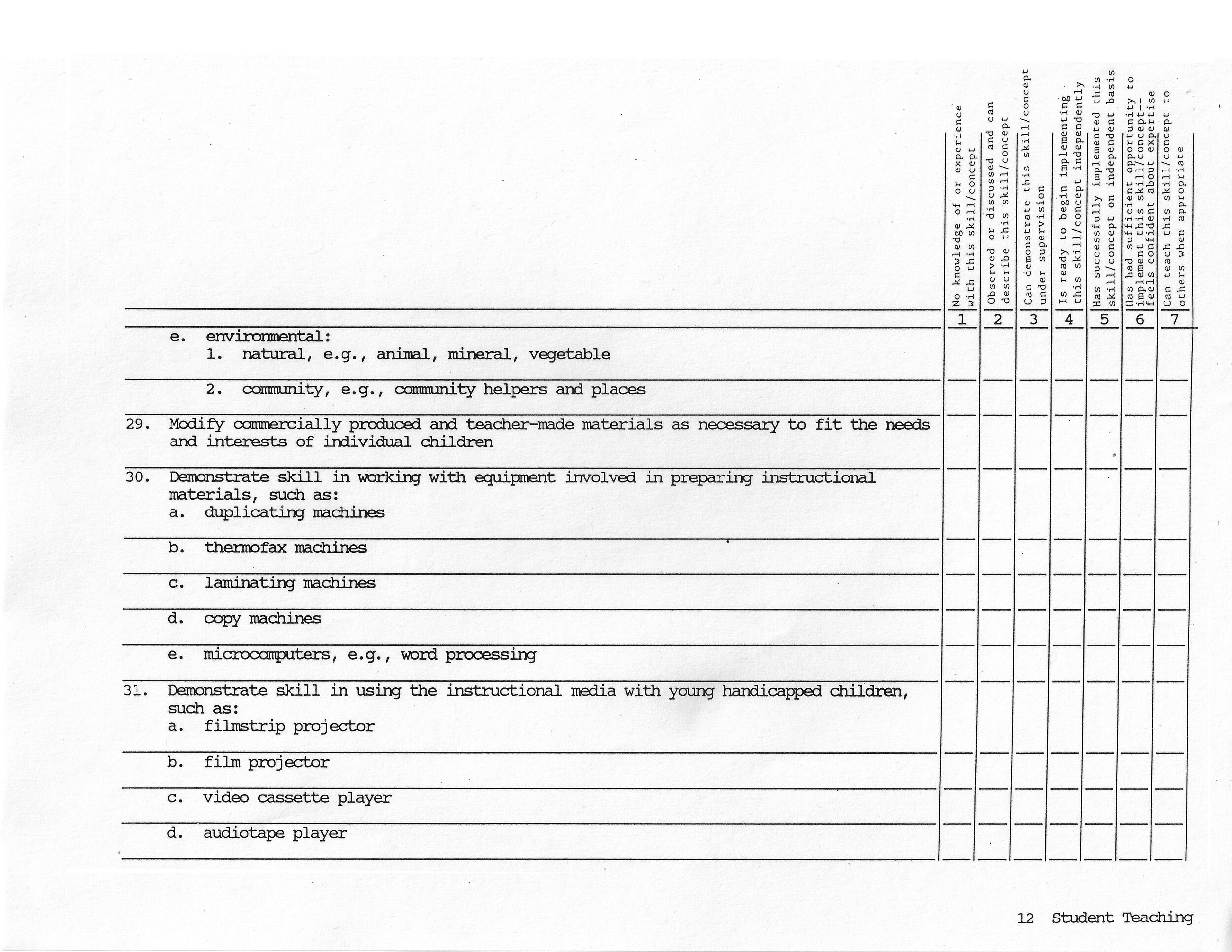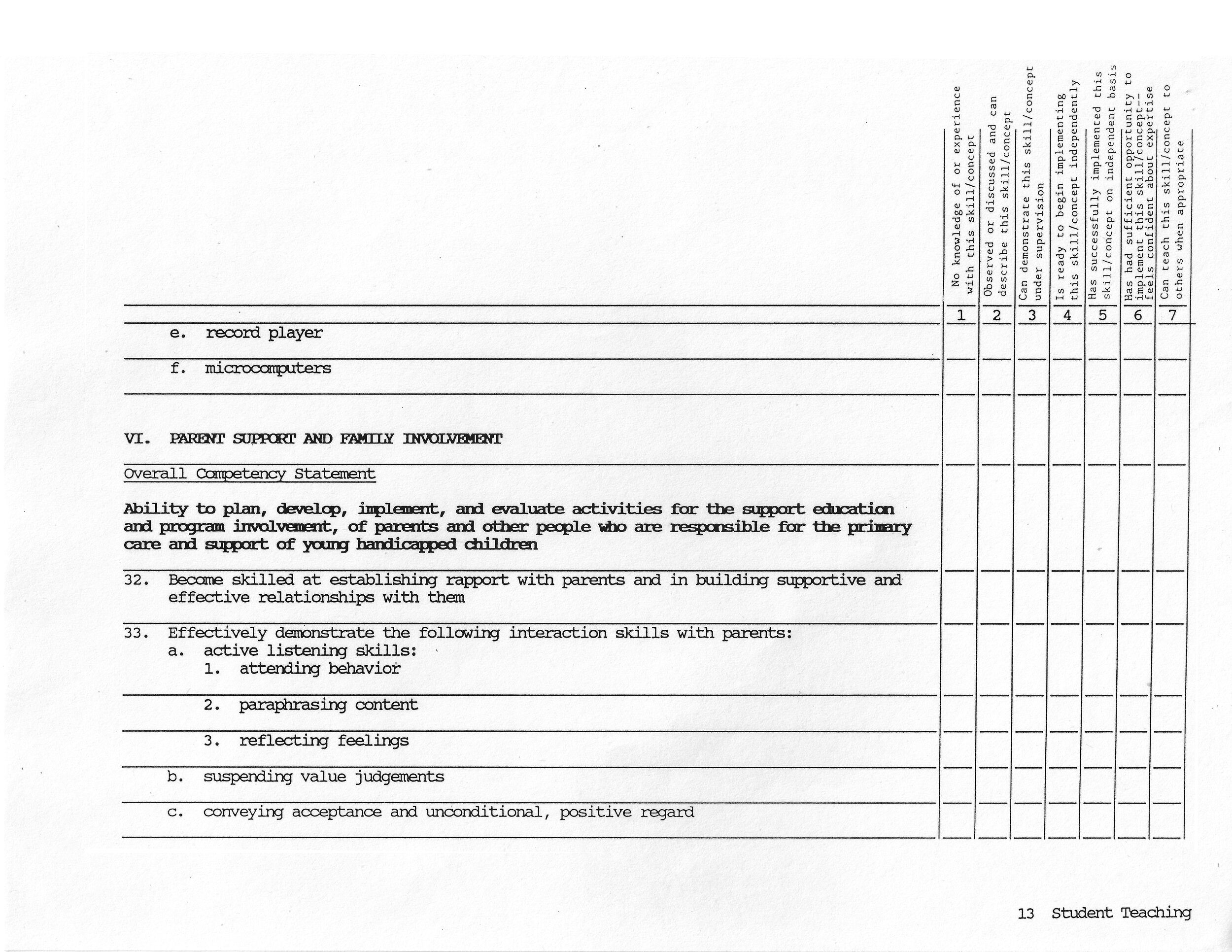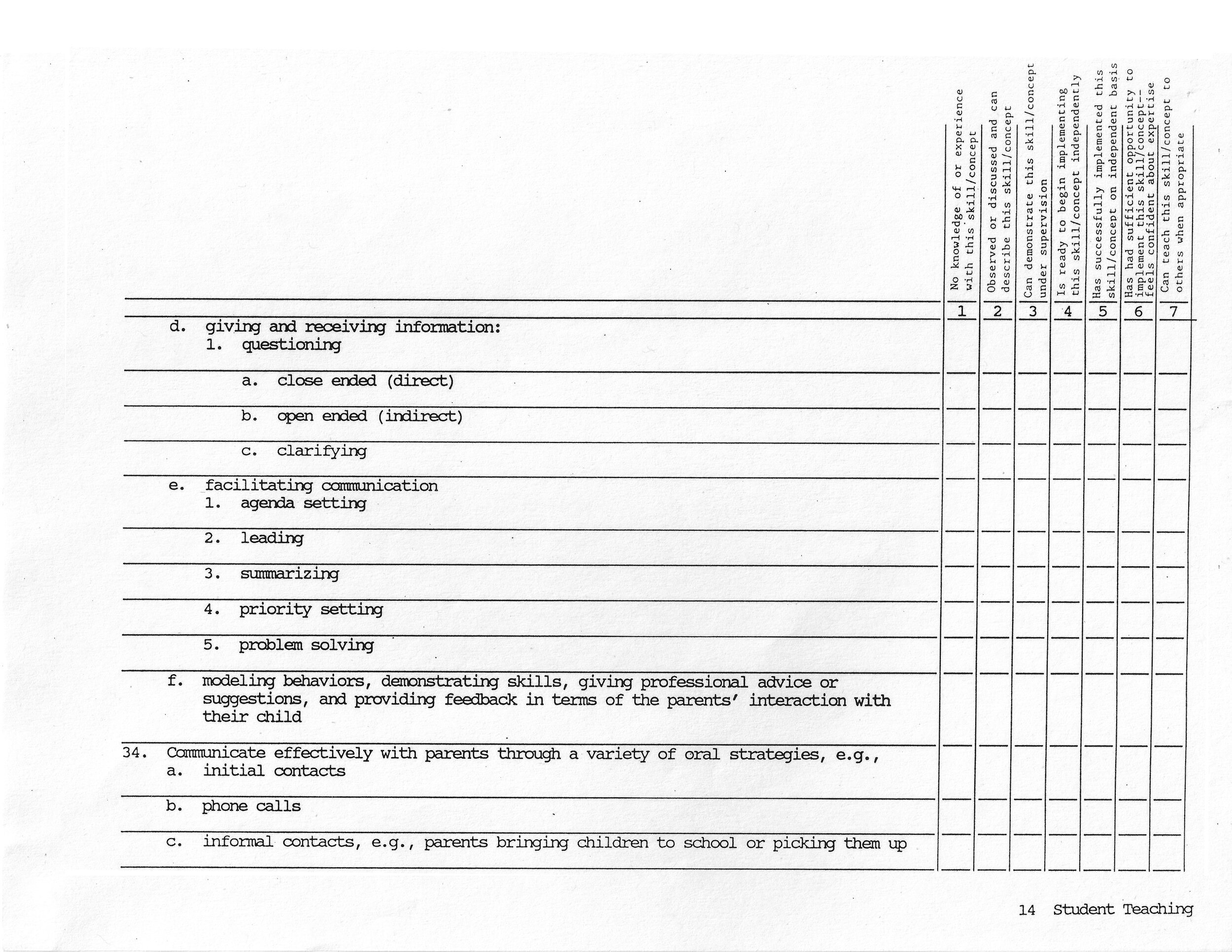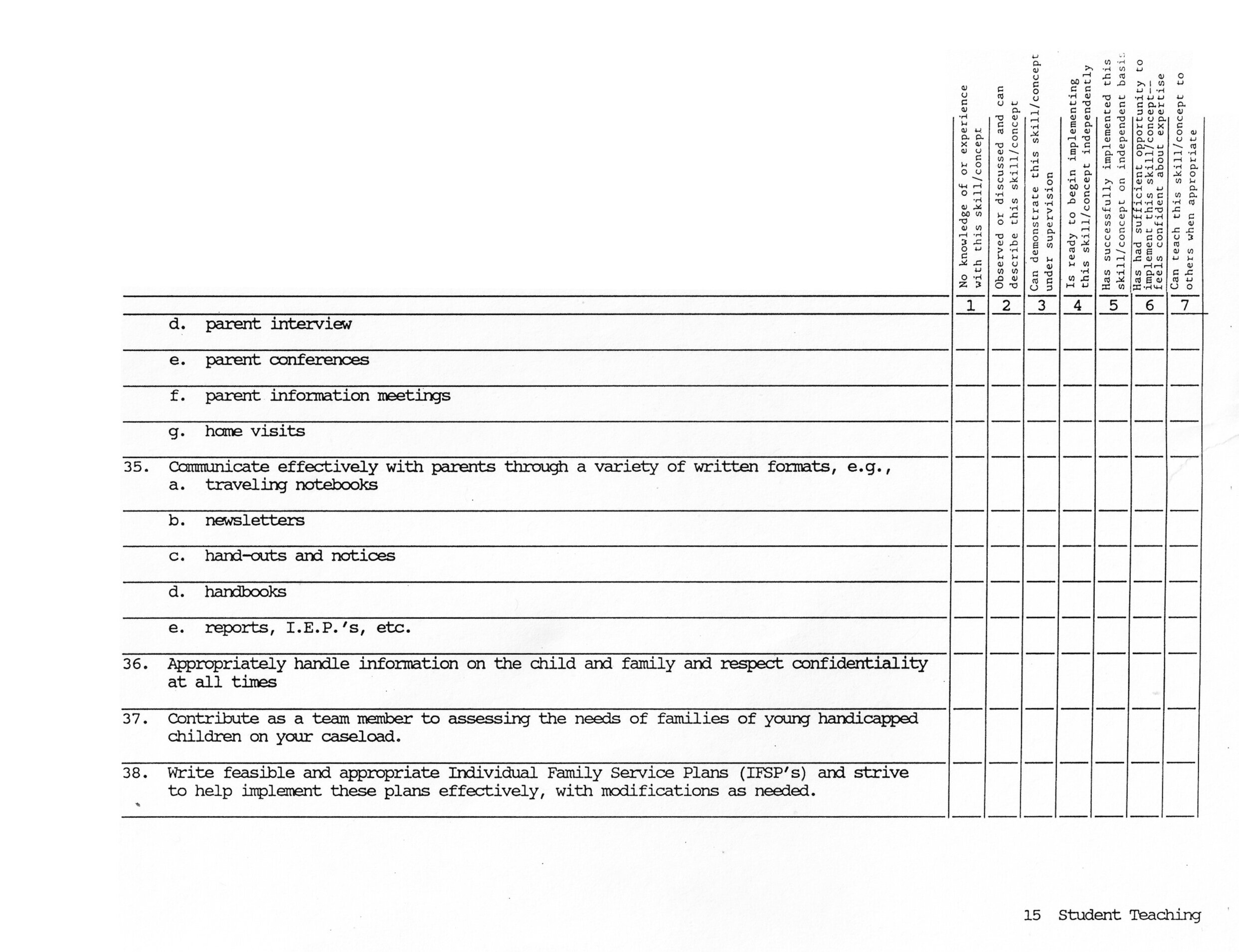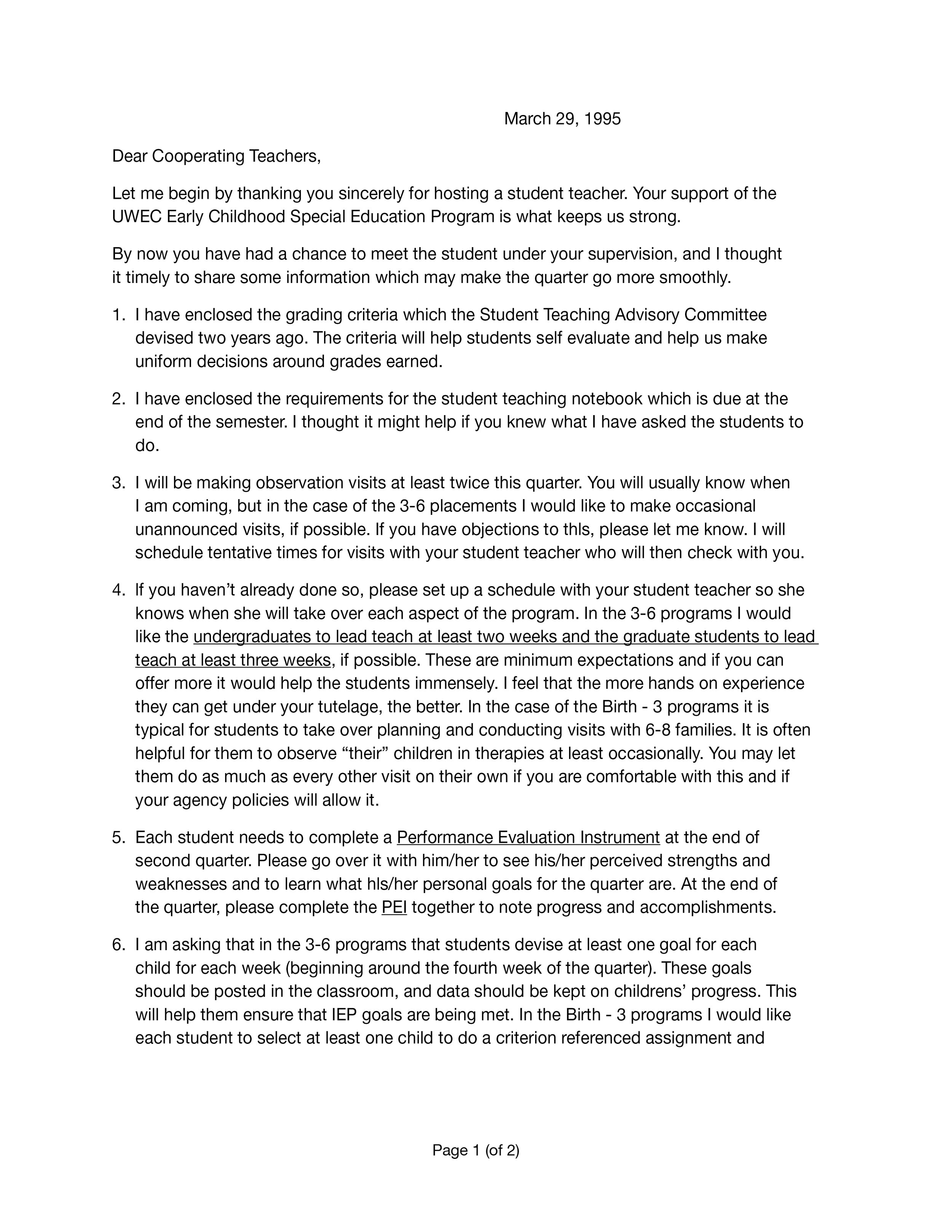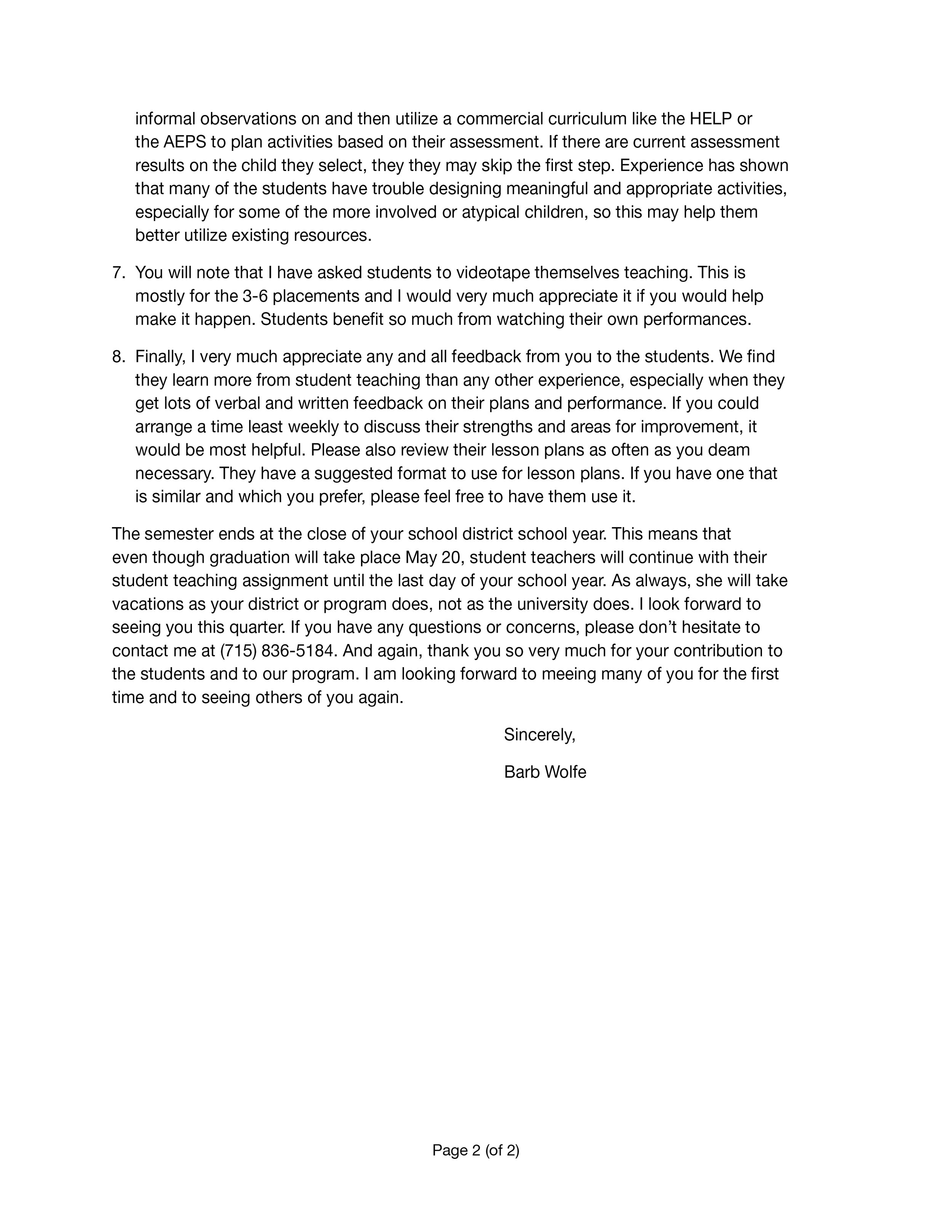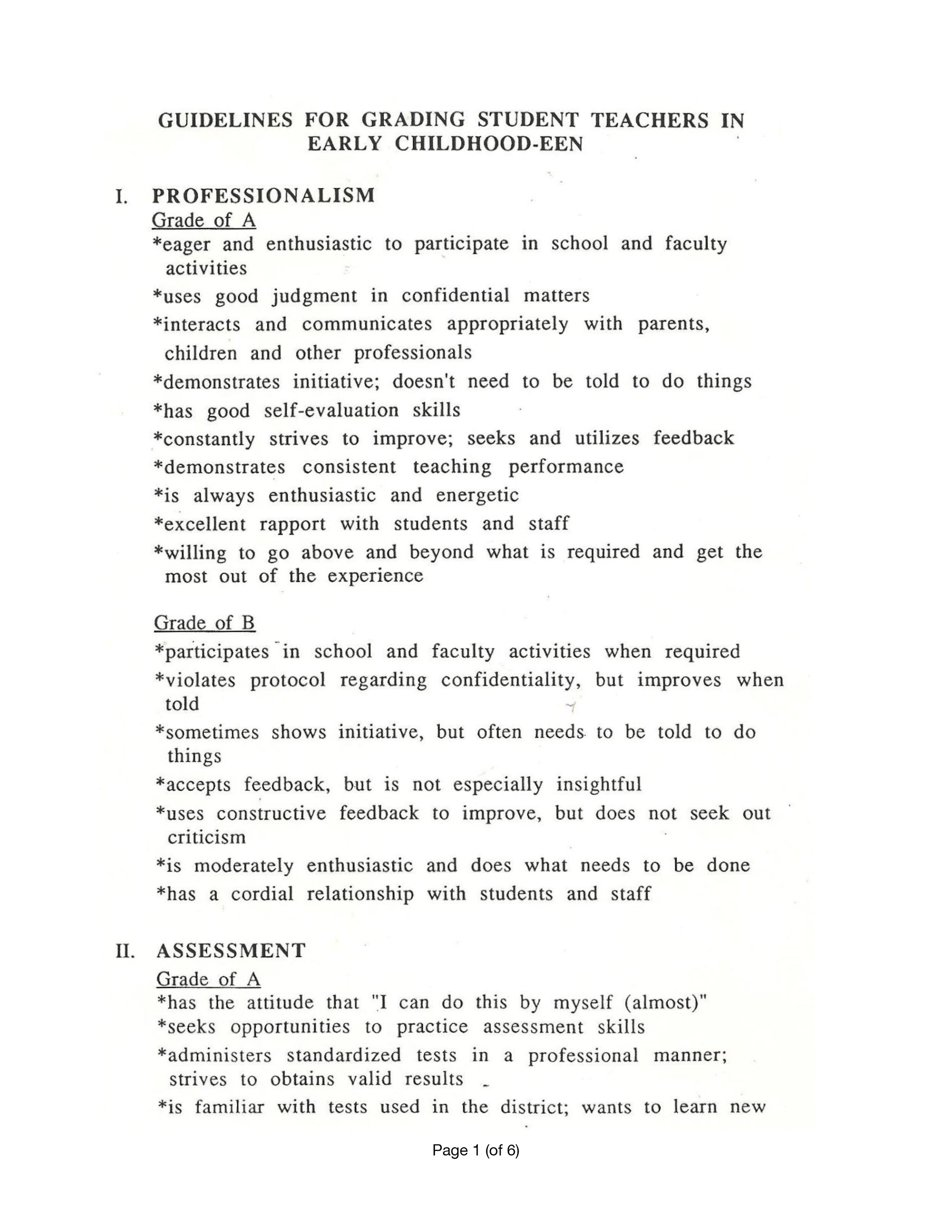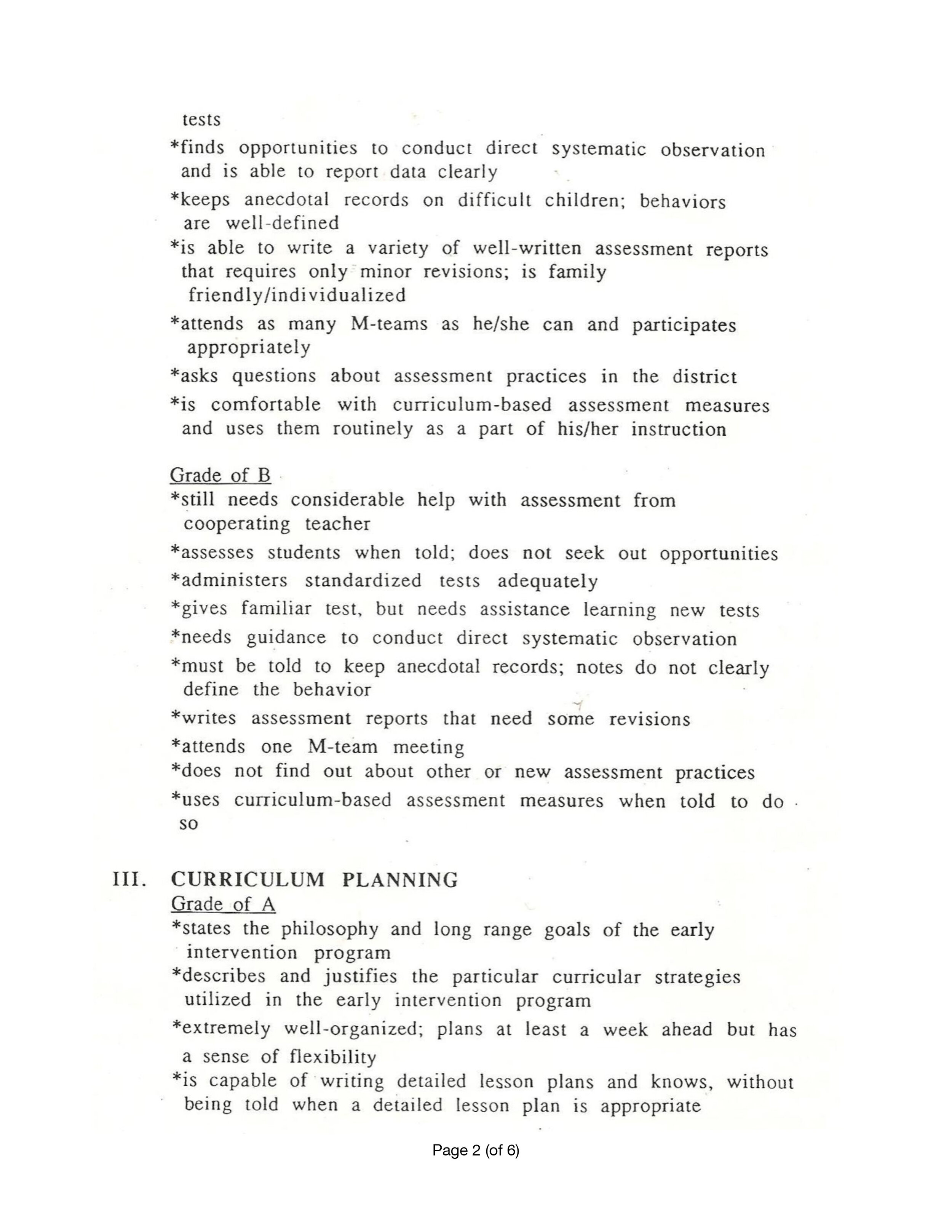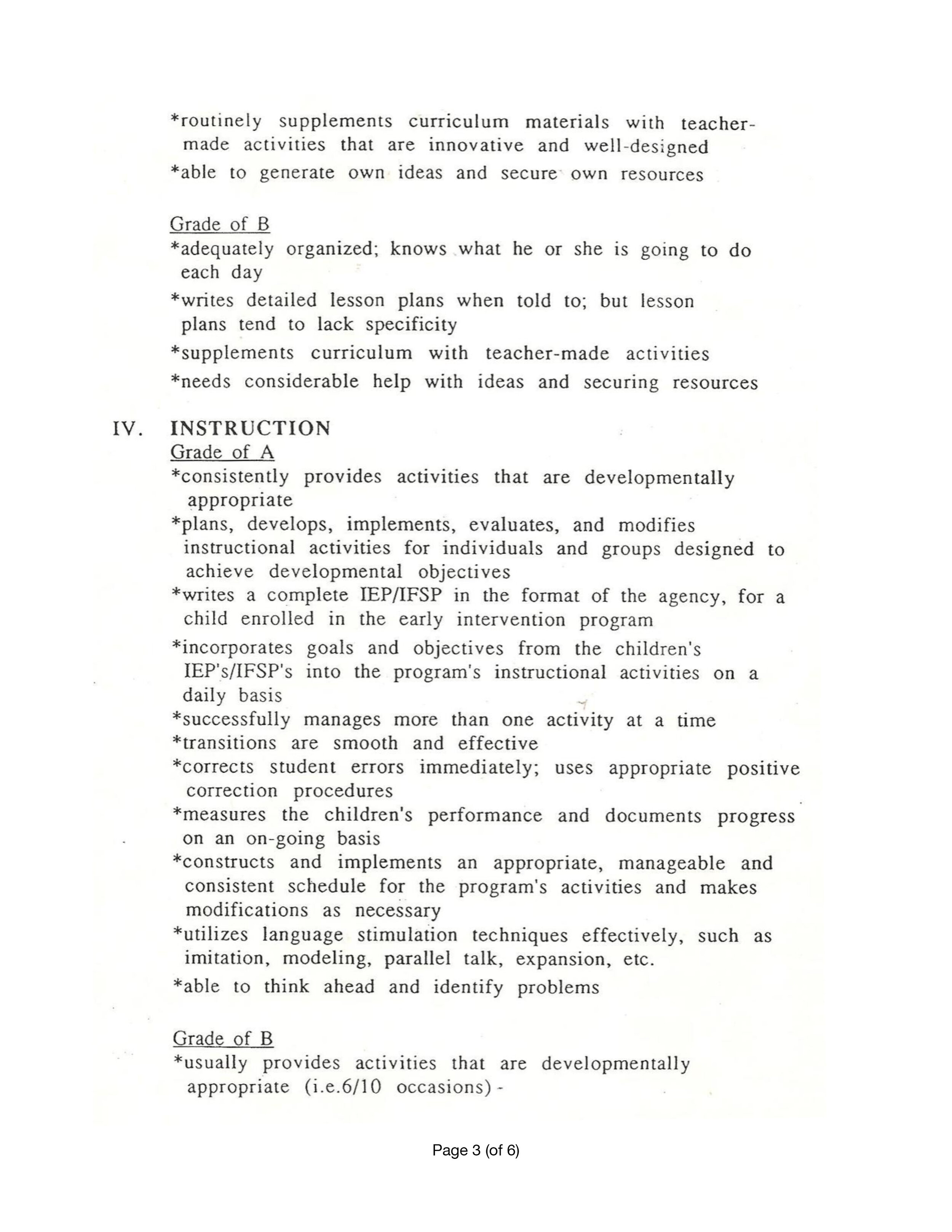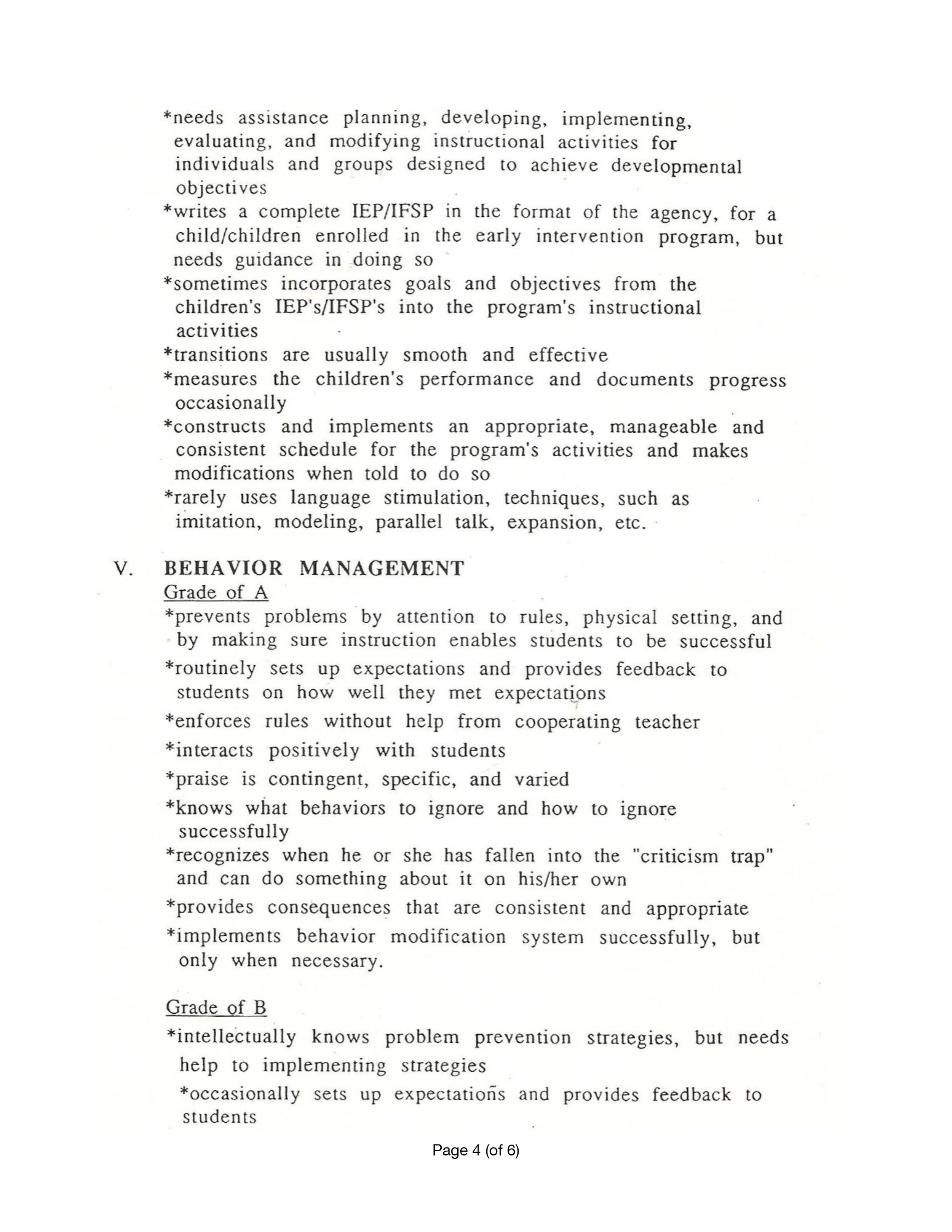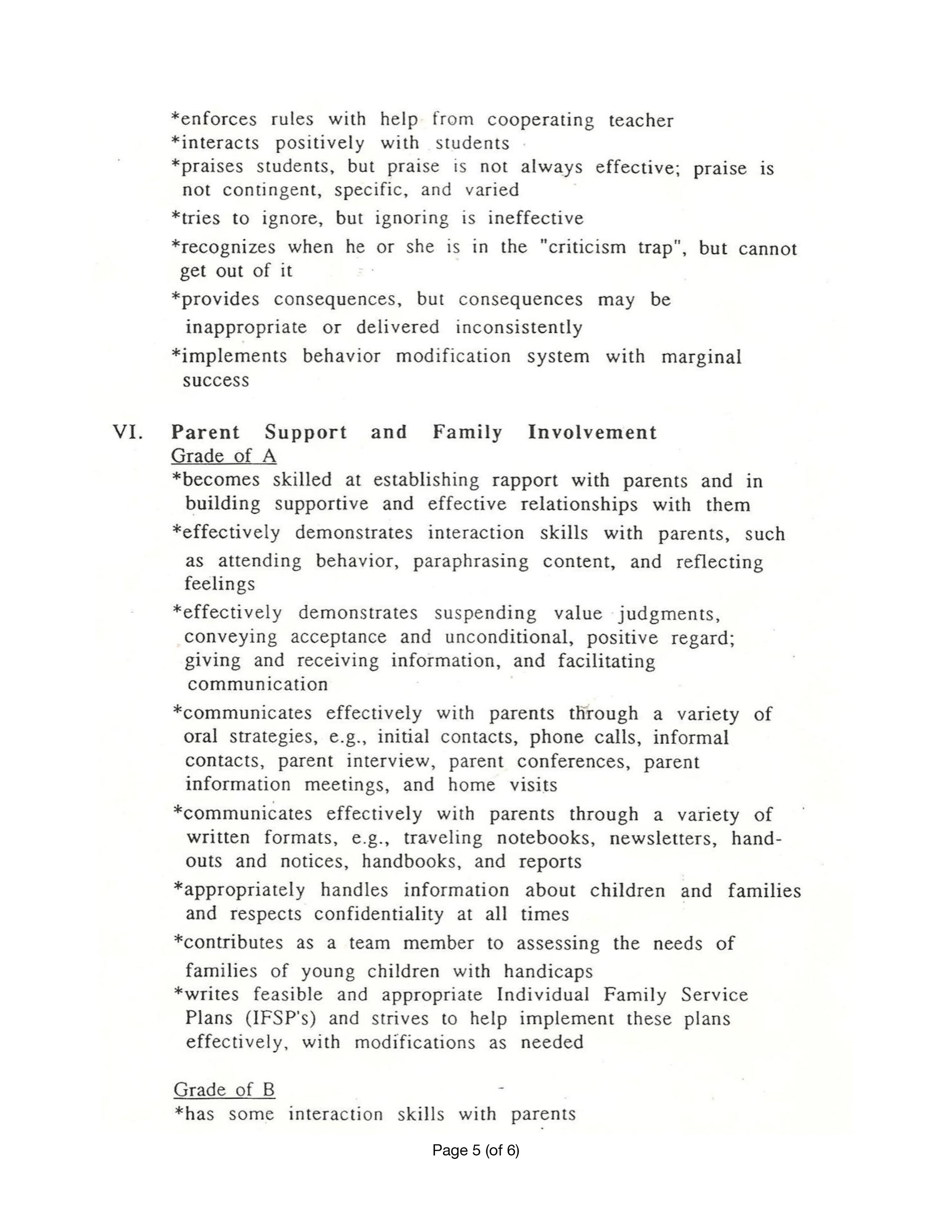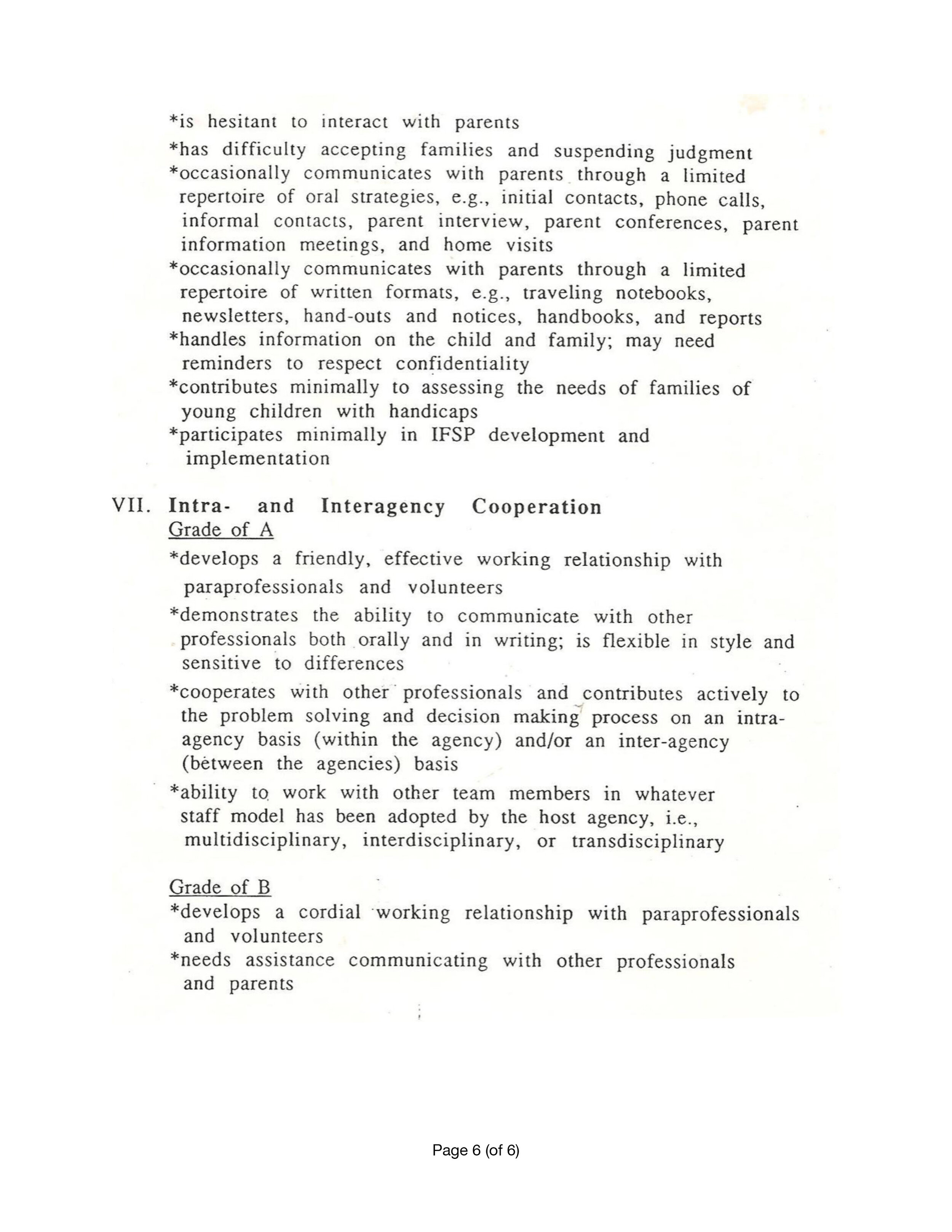Evaluation Practices
Program, instructor and student evaluations evolved over the years, each being developed and modified to improve the effectiveness of the programs, respond to degree and certification requirements, and accountability trends. The UW-Whitewater and UW-Eau Claire ECSE faculty, staff, and graduate student assistants contributed to conceptualization, development, and implementation of these practices. For example, over several years, ECSE program evaluation practices resulted in increased attention to writing measurable objectives, behavioral practices, and infant-toddler experiences. Later input led to more focus on inclusion, grade K-3 general education practices, and finally an increased focus on demonstrating that graduates possessed the knowledge and skill to be successful entry level teachers. Betsy McDougall-Gibbs, Dr. Barbara Wolfe and Dr. Sarah Hadden played major roles in the development of these evaluation practices.
Student Performance Evaluation Instrument(PEI) and Individual Learning Plans (ILP)
Our program Individual Learning Plan (ILP) was an important part of our program’s evaluation procedures. A premium was placed on students’ evaluation of their growth via the regular use of the program’s competency based Performance Evaluation Instrument(PEI). Students completed this self-evaluation before select courses in the ECSE sequence. The PEI was designed to encourage students to take responsibility for their learning. Later, students were required to develop an Individual Learning Plan (ILP) for each of the practicums. The ILPs were reviewed and monitored by supervisors and the instructor of a seminar taken in conjunction with practicums. This practice became increasingly important. In 2005 the State Department of Public Instruction began to require practicing teachers to develop an ILP that included measurable objectives for re-certification purposes. These were referred to as Professional Development Plans.
Individual Learning Plan (ILP) Instructions
Determine learning goals based on reflection/self-evaluation on ECSE knowledge, skills and dispositions performance outcomes.
Prepare a 1-2 page ILP consisting of:
a. List of one to three measurable outcome objectives,
b. Brief paragraph explaining why this or these objectives are appropriate, and
c. List of administrative objectives that explain how and when the writer will address the objectives.Administrative objectives (tasks) may be accomplished through any combination of the following activities (library work, job shadowing, interviews, teaching tasks).
Results of what is learned will be presented on a poster presentation with appropriate handouts. The poster will meet criteria presented in class.
A copy of the PEI follows.
Guidelines for Evaluating Student Teacher performance
Our cooperating teachers, members of our multi-disciplinary training team, and fieldwork supervisors participated in the identification of competencies and the development of the evaluation practices. These practitioners were also involved in the development of “Guidelines for Grading” each of these experiences.
Instructional letter to supervisors:
2. Supervisor grading criteria for course-related fieldwork:
3. Student teacher instructions:
Another example of a Course related Fieldwork Evaluation Form
This form was completed by the student's cooperating teacher and returned to the course instructor in all courses requiring fieldwork at middle and the end of the semester. This evaluation focused on professional behavior.
Back to the top | Next: Study Guides >


